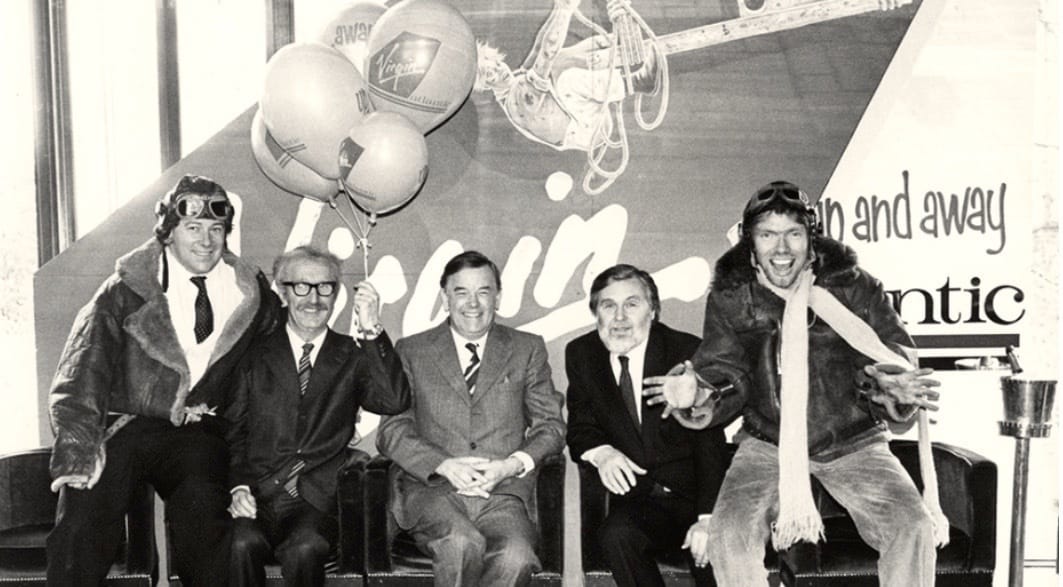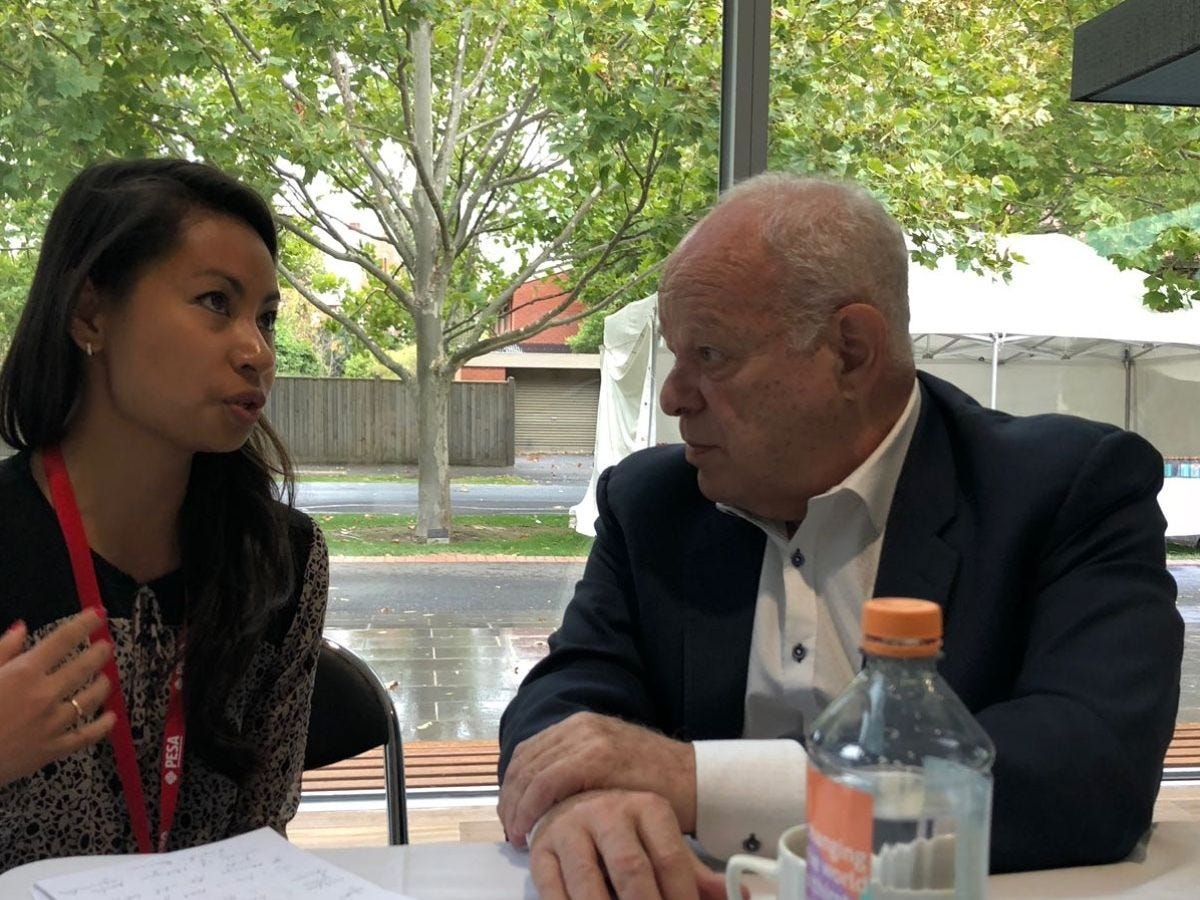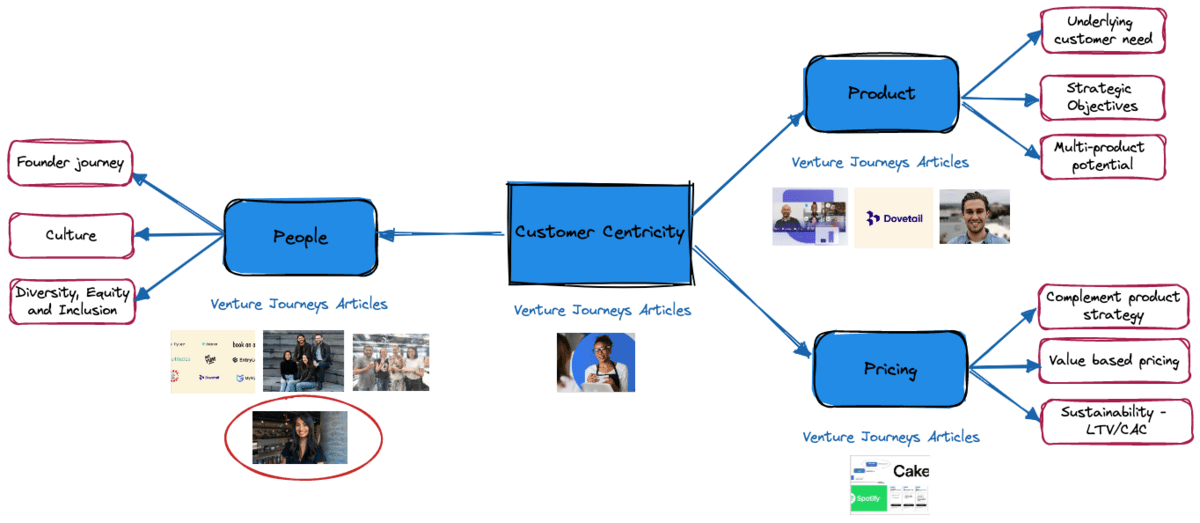How Nikki Tugano Is Transforming the Workplace With SeenCulture
Focusing On Your Strengths
Hi everyone 👋
Have you ever worked for a manager who constantly underestimated you? It’s hard for companies to understand what each employee is capable of. Frustrating micromanagement is often the result. Yet, creating a culture where employees feel empowered is essential to customer centricity.
This is why I’m excited to profile SeenCulture and its founder Nikki Tugano. Nikki’s central insight is based on positive psychology, a science encouraging people to focus on their strengths. We feel engaged when we are working on what we are good at.
Learn about Nikki’s inspiring journey and her mission to improve workplaces globally.
Nikki Tugano, Founder of SeenCulture
All opinions are personal, this is not investment advice
Talent Management’s Untapped Opportunity
“What sets one airline apart from its peers are its crew and their attitude toward passengers… People are your key assets. On the front lines of business, they can make or break a company.”
Sir Richard Branson
Culture plays an important role in customer centricity. Employees go the extra mile when they feel engaged and connected to a company’s mission. Sir Richard Branson used this idea to succeed in industries ranging from music to airlines.
Sir Richard Branson
Yet, when it comes to talent management, companies have traditionally focused on recruitment and skills instead of retention and development.
Improving retention is an untapped opportunity. Replacing staff can cost up to 200% of their salary due to recruitment costs and lost productivity.
But it’s not easy. It takes a lot more than hiring based on skills and experience, which major systems like SAP and Workday focus on. Improving retention requires a cultural change across the organisation.
Successful cultural change is all about trust. Seeing employees as individuals motivates and gives them the confidence to contribute fully. Companies need software for managers to engage employees at scale.
Understanding how to motivate people enabled Nikki Tugano to overcome her challenging background and find success in her career.
Her business SeenCulture, is part of a growing breed of software solutions that use the principles of Diversity, Equity and Inclusion (DEI) to build trust with employees.
How Diversity, Equity and Inclusion Drive Retention and Performance
It’s getting harder for companies to meet their talent needs.
Disruptions such as COVID and the growing skills gap are raising the stakes of holding on to valuable employees. Managers need to make their employees feel valued at work.
They are increasingly turning to software systems that promote Diversity, Equity and Inclusion (DEI) in the workplace. In 2022, this was a $7.5bn market growing at 12.6%.
What makes DEI so effective in the workplace?
Seeing employees as human beings creates a psychologically safe environment where they feel safe to contribute fully. 3 principles of DEI are:
Intersectionality focuses on the background of the individual. People from minority backgrounds face multiple societal challenges that stack, making it harder for them to contribute.
Privilege describes the advantages that belong to a group of people due to aspects such as race and gender. Understanding privilege allows managers to relate to employees.
Allyship encourages managers to become collaborators with team members by removing barriers to their participation.
DEI doesn’t just engage employees. It also drives performance. Google’s landmark study found psychological safety to be the most important factor driving team performance.
DEI is a bit like oxygen. You notice how important it is when you have to live without it. What follows is Nikki’s journey.
Nikki’s Journey to Discovering Her Superpower
“I’ve needed to become quite savvy about human behaviour and really knowing and understanding what sets people off and what motivates them to action.”
Nikki Tugano, Founder of SeenCulture
Nikki faced intersectionality from an early age. She was raised by a single mother who was a migrant from the Philippines with very little to her name. Coming from a broken family, she lacked the unconditional love a child should experience.
Think about this. Your childhood is the one time when you are loved and ‘seen’ for who you are rather than what you can do.
Nikki’s childhood lacked this level of psychological safety. Growing up with divorced parents, Nikki developed a unique ability to understand human behaviour to avoid setting them off. She learned to ‘see’ people despite not being ‘seen’ herself.
School was an important turning point. She faced challenges such as bullying due to her migrant background. But this time, she was ready for them.
“I gained a lot of confidence when I realised I could do well at school. That was the first thing I had control over.”
Nikki Tugano
Nikki’s hard work and understanding of human behaviour allowed her to take bold initiatives that would propel her ahead of her peers.
Despite her background, she made it to Macquarie University, where she majored in Human Resources, Marketing and Psychology. But it wasn’t enough for her.
While in university, she worked in a series of full-time jobs.
“I was in my early 20s, working full time managing several teams, and at the same time studying a full time double degree.”
Nikki Tugano
How did she inspire loyalty from team members who were older and more experienced than herself? These people would not see her as their manager unless she made the effort to understand their individual roles and challenges.
Nikki spent time doing everything from packing boxes in a warehouse to managing inventory in supply chain management, all the while leading business operations as the 2IC (second in charge) to the Managing Director. Going out of her way to understand them, won her team members over.
She was integral to the business’s growth from 12 people to 70.
From a family surviving on very little, Nikki had already achieved more success than the vast majority of her peers. She had the means to travel to Europe and the UK, where she discovered the benefits of positive psychology.
Achieving Diversity, Equity and Inclusion Through Positive Psychology
“Work is no longer just a source of income… it’s a source of identity. My vision would be for everyone to say they feel ‘seen’ in the workplace, be recognised for their strengths, and are engaged with meaningful work.”
Nikki Tugano
Nikki wanted to delve deeper into understanding human behaviour, the skill that played such an important part in her life.
She found success by using her strengths, not by dwelling on her challenges. But most psychology programs focus on the problems individuals have.
After careful searching, Nikki found the perfect post graduate program. She won a scholarship to study a Masters in Applied Positive Psychology and Coaching in the UK.
Positive psychology and coaching emphasise helping a person succeed through their strengths.
In the workplace, people are motivated by:
Autonomy: Trusting them to use their strengths to accomplish important goals. For example, trying new ideas or methods.
Growth: Creating growth opportunities aligned with their strengths.
Connection: Being part of a team and a shared sense of purpose.
Recognising a person’s strengths requires that they are ‘seen’ as individuals rather than through their job titles or backgrounds. This is the essence of DEI.
Nikki with the ‘father of Positive Psychology’ Martin Seligman
Following her Master's degree, she relocated to Melbourne where she teaches and conducts research on positive psychology at the University of Melbourne's Center for Well-being Science.
To Nikki, positive psychology needed to go beyond academic theory. Her vision is to bridge the gap between what science knows, and what business does.
She founded SeenCulture to provide people in the workplace an opportunity to be seen for being more than just a worker, but a human being with a myriad of strengths, values, motivations and aspirations.
Building The ‘Moneyball’ for Teams and Organisations
It’s challenging for companies to use positive psychology in the workplace because it’s too hard to understand everyone’s individual strengths and potential. SeenCulture’s unique approach uses a combination of positive psychology and data science to interpret the results of a proprietary employee survey.
The survey also involves colleagues and managers which creates trust. The entire team feels part of the process, not just an opaque algorithm or individual manager.
While other solutions focus on subject matter expertise, SeenCulture evaluates employees against 5 intelligence types as shown below.
See graphics of the framework here:
SeenCulture 5 Intelligence Types
The additional 4 intelligence types (blue boxes above) give a more complete picture of an employee's unique strengths and motivations. It helps them to be ‘seen’.
These intelligence types also make SeenCulture a valuable DEI distribution partner for larger companies like CultureAmp and bambooHR.
Based on the results from the survey, SeenCulture uses predictive modelling to match employees to roles that best fit their unique strengths and potential.
Using SeenCulture’s dashboard, managers select team members for projects and promotions based on diverse attributes rather than individual bias.
It’s like the movie ‘Moneyball’ where the Oakland Athletics baseball club found success by constructing their team based on player attributes rather than reputation.
Like the Oakland Athletics, companies can uncover the untapped potential within their workforce.
“Think ‘Moneyball’ but for teams and organisations. It’s like finding the $50 note in your jeans you didn’t realise was there.”
Nikki Tugano
It’s Ultimately About Trust
SeenCulture can unlock productivity, retention and other benefits for its customers.
Ultimately, Nikki’s mission and SeenCulture’s product is to promote cultural change in the workplace.
But cultural change is all about trust. Managers and employees need to believe in SeenCulture’s recommendations.
Few people have Nikki’s diverse perspective on DEI from her youth, academic and professional career.
She designed an empathetic ‘reward’ where employees receive individualised talent reports recommending development paths that match their strengths.
Personalised development roadmaps for employees serve as a basis for discussing career goals
It’s a foundation for an authentic discussion. Employees feel they can influence their career growth and managers become allies by advocating employees be included in positions that best fit their strengths.
Due to SeenCulture’s collaborative process (e.g. peer contribution to the survey), employees also feel part of the broader organisation’s mission and decision making process.
How SeenCulture’s Customer-Led Design Is Giving It a Head Start
“The reason why we had so much traction in such a short period is because we did everything backwards… I got the customer first, developed a solution to meet their needs, piloted it, built an MVP, and then I started the business.”
Nikki Tugano
SeenCulture shows what can be achieved when solving a real problem.
Bootstrapped and with just an excel sheet, in 6 months SeenCulture achieved $186,000 in revenue with 2 global customers and over 1300 users. This includes $47,000 in annual recurring revenue.
With this traction and a promising pipeline of 3 to 4 major customers, Nikki built out her team with experts in psychology and data science. She also secured a technology partner, Everest Engineering, to turn her excel sheet into a SaaS solution.
With a working solution, team and technology partner, SeenCulture’s next goal is to develop a scalable distribution strategy through partnerships with larger players like CultureAmp.
Conclusion
Culture is a crucial part of customer centricity. Nikki’s insights show how employees can be engaged by seeing them as individuals and encouraging them to lean into their strengths. It’s a valuable addition to the Venture Journeys Customer Centricity Framework shown below.
Venture Journeys Customer Centricity Framework
The challenge has been finding a scalable way to apply positive psychology in the workplace. It’s too hard for managers to have a detailed understanding of every employee.
SeenCulture solves this through a combination of data and behavioural science. Most of all, it rewards both employees and companies.
Employees are given development opportunities tailored to their strengths, while companies see increased performance and uncover capabilities they never realised they had.
If you are a medium to large size organisation or an investor interested in this space, check out SeenCulture here.
For investors, Nikki is a finalist at The Pitch by Smart Company and AWS, and Startup Victoria’s Health and Wellbeing pitch night. Follow Nikki Tugano and SeenCulture on LinkedIn to keep up to date with their journey!







